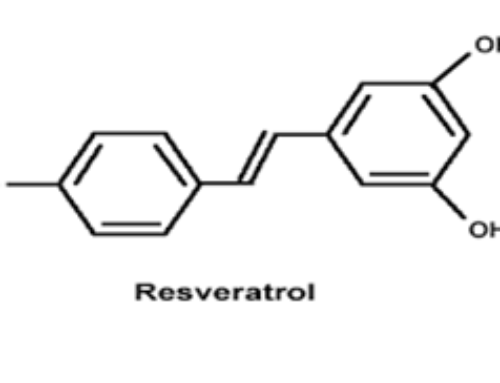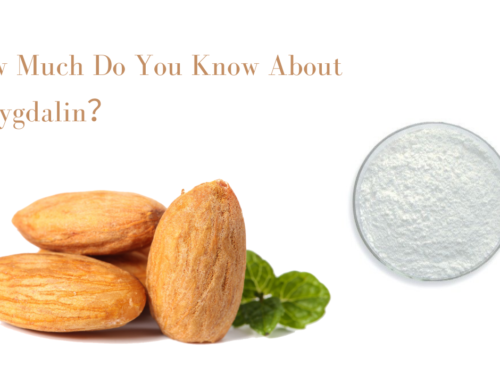Inulin is a natural polysaccharide, which is mostly found in the cells of Asteraceae and Campanulaceae. It is also considered a soluble fiber and belongs to a type of fructan. It is a prebiotic that can promote the growth of probiotics in the intestines. A moderate intake of inulin can help improve hyperlipidemia, relieve constipation and help lose weight. Inulin is another form of energy storage for plants in addition to starch. It is an ideal functional food ingredient and a good raw material for the production of oligofructose, polyfructose, high fructose syrup, crystalline fructose and other products. Let’s learn more about the efficacy and role of inulin!
The function and effect of inulin:
- Inulin can beautify your face
Eating inulin has a good effect on the skin. Inulin can reduce the pigmentation of the skin, whiten and beautify the skin, and make the skin bright, tender and shiny.
- Inulin can lower blood sugar
Inulin is a carbohydrate that does not cause an increase in glucose in urine. It will not be hydrolyzed into monosaccharides in the upper part of the intestine, so it will not increase blood sugar levels and insulin content. According to the survey report of patients with high blood sugar who continue to take inulin, taking inulin on an empty stomach or drinking a drink containing sufficient inulin can immediately lower blood sugar level, and many people will notice a significant decrease in blood sugar in a short period of time.
- Inulin can treat constipation
Many people who took inulin obviously felt that their gastrointestinal function was enhanced and their stools began to flow smoothly. At the same time, after taking inulin, it can enhance the peristalsis of the intestines, discharge odorous gas, and restore the health of the intestines, especially for some habitual constipation and intractable constipation have a good prevention and treatment effect.
- Inulin can lose weight
Inulin absorbs water and swells in the stomach to form a high-viscosity colloid, which makes people less hungry and prolongs the emptying time of the stomach. It can also form complexes with proteins, fats and other substances in the small intestine to inhibit the absorption of these substances and achieve the goal of weight loss. .
- Inulin can improve intestinal function
Inulin is not digested and absorbed but directly enters the large intestine and is preferentially used by bifidobacteria to produce acetate and lactate, which reduces the pH of the large intestine, thereby inhibiting the growth of harmful bacteria.
- Inulin can lower blood lipids
Inulin is fermented into short-chain fatty acids (acetate and propionate) and lactate before the end of the intestine. Propionate inhibits the synthesis of cholesterol, and lactate is a regulator of liver metabolism. Water-soluble dietary fiber absorbs fat in the intestine to form a fat-fiber complex that lingers out with feces, thereby reducing blood lipid levels.
- Inulin can promote the absorption of trace elements
Certain dietary fiber can promote the absorption of trace elements, and inulin is one of them. It can effectively promote the body’s absorption of calcium and magnesium. Patients with long-term cost of anti-gastric acid drugs (proton pump inhibitor-PPI) are prone to severe magnesium deficiency, and supplementing inulin (20g per day) while using PPI can improve this situation.
In addition, there is certain evidence that inulin can inhibit certain conditional pathogens and reduce intestinal inflammation caused by these pathogens. It has been found in animal experiments that long-chain inulin can inhibit the occurrence of type 1 diabetes by regulating intestinal function.
- The improving effect of inulin on mild to moderate depression and anxiety
The 2-9 oligofructose in inulin can increase the expression of neurotrophic factors in brain nerve cells, and has a good protective effect on corticosterone-induced neuronal damage, and has a good effect on mild to moderate depression; Therefore, fructooligosaccharides can affect the central NE and 5-HT concentration, so it has a better effect on mild to moderate depression and anxiety.
Side effects of inulin:
- Inulin can aggravate digestive symptoms
For various reasons, some patients with irritable bowel syndrome (IBS) have highly sensitive intestines. For this part of the population, a small amount of gas produced by the fermentation of FODMAPs may cause symptoms of abdominal distension, abdominal pain, diarrhea and bowel sounds. Inulin is sloppy, moderately fermentable, and produces a certain amount of gas. Therefore, people with digestive problems often cannot tolerate inulin. Therefore, for patients with IBS, it is recommended to avoid inulin ingestion during severe attacks. However, in the long term, prebiotics are still important for rebuilding intestinal flora. Therefore, after the symptoms have stabilized, you can start supplementing with a small amount (0.5g). While supplementing inulin, it may be helpful to supplement some anti-flatulence probiotics. For example, Lactobacillus Plantarum 299V (Lactobacillus Plantarum 299V), if it is really intolerable, you can choose low-proliferation dietary fiber such as galacto-oligosaccharide, resistant starch, psyllium seed husk, etc.
- Inulin may cause allergies
Although allergies to inulin are rare, related cases have been reported. If you find that you have acute skin itching, red lips, vomiting or diarrhea after exposure to inulin, you need to consider the possibility of allergies.
Which plants contain inulin?
Many plants in nature contain inulin, among which chicory, Jerusalem artichoke, garlic, onion and asparagus are rich in inulin. Chicory root is the most abundant source of inulin in nature. Each 100g dry weight of chicory contains 35g-47g of inulin. Chicory is an internationally recognized source of high-quality inulin. Jerusalem artichoke contains 16g-20g inulin per 100g. Garlic is also rich in inulin, with 9g-16g inulin per 100g. Onions also have a certain amount of inulin, containing 1g-7.5g inulin per 100g. Asparagus also contains inulin, which contains 2g-3g inulin per 100g. In addition, bananas, burdock, leeks, and green onions also contain a certain amount of inulin.
After reading the above content, do you have a understanding of inulin powder health benefits? Xi’an Herb Bio provides inulin powder has the best health benefits and better storage. Click the button below, come to consult us and order.
If you think this article is useful to you, please forward it to your friends who need it! Welcome to leave a message below to add more information about inulin powder.






Leave A Comment